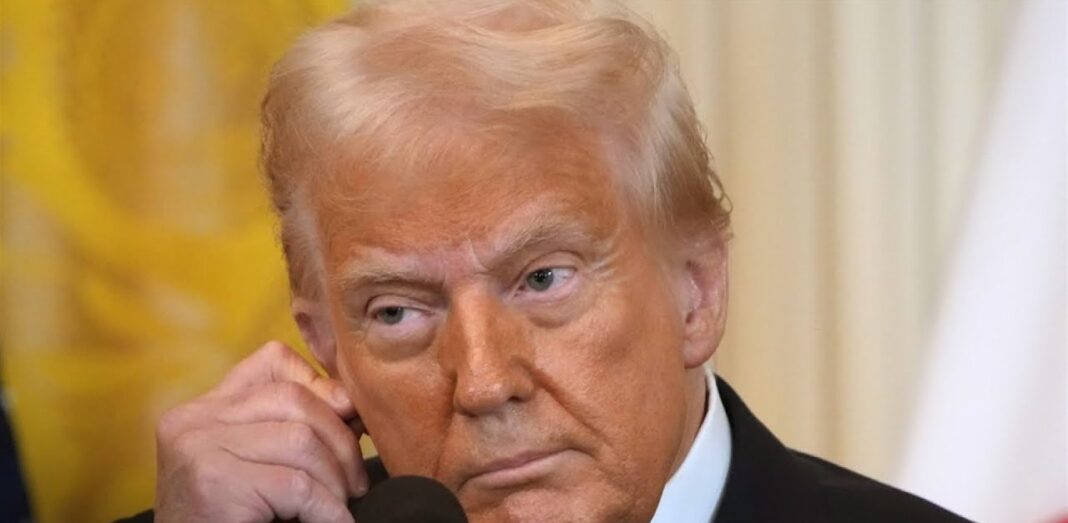Recent political discussions have centered on Donald Trump’s influence and the potential successors within the MAGA movement. Despite being given the opportunity, Trump did not endorse Vice President JD Vance as his political heir. His hesitation has raised questions about the future leadership of the Republican Party and the possible emergence of a Trump dynasty.
Trump’s Reluctance to Endorse JD Vance
When asked about JD Vance’s potential as the 2028 Republican nominee, Trump responded with a noncommittal stance. While acknowledging Vance’s capabilities, he emphasized that it is too early to make such decisions. Political analysts suggest Trump’s transactional approach to endorsements plays a key role in his hesitation. He may be holding back his support to retain leverage over potential candidates.
The Possibility of a Trump Family Dynasty
Trump’s reluctance to fully endorse Vance has fueled speculation about his own family’s political aspirations. Some believe that Donald Trump Jr. or another family member could emerge as a potential candidate in future elections. The concept of political dynasties is not new in U.S. history. The Bush, Clinton, and Obama families have all maintained political influence across multiple elections.
Historical Precedents for Political Dynasties
- The Bush Family: George H.W. Bush served as president, followed by his son, George W. Bush.
- The Clinton Family: Hillary Clinton, after serving as First Lady, later ran for president.
- The Obama Influence: While Barack Obama has not put forward a successor, his political influence remains strong.
Given these examples, the possibility of another Trump family member entering the race cannot be dismissed.
The Third-Term Controversy
Trump has hinted at the idea of seeking a third term, sparking concerns about potential constitutional crises. While some dismiss these statements as attention-seeking tactics, others believe he is planting the idea to test its viability over time. Political observers argue that these remarks help Trump maintain control over the Republican Party and keep congressional allies aligned with his vision.
Implications of a Third-Term Attempt
- Constitutional Concerns: The U.S. Constitution strictly limits presidents to two terms.
- Political Strategy: By floating the idea, Trump may be preparing the ground for future legal or political challenges.
- Party Influence: Keeping discussions alive ensures continued dominance within the GOP.
The MAGA Movement’s Future: Transferable or Not?
A key question remains: Can the MAGA movement survive beyond Trump? Historically, political movements have struggled to transition from their original leader to a successor. While Trump’s influence remains strong, it is unclear whether his brand of politics is transferable to another candidate, even within his own family.
Challenges for MAGA’s Longevity
- Loyalty to Trump: MAGA followers identify strongly with Trump’s personality and leadership style.
- Lack of a Clear Heir: No one, including JD Vance or Trump’s family, has been definitively positioned as the movement’s next leader.
- Potential Divisions: If multiple figures vie for leadership, the movement could fragment.
Future Outlook: What’s Next for Trump and the GOP?
Looking ahead, several factors will shape the Republican Party’s direction:
- Trump’s Influence: Will he endorse a successor, or will he continue to hold onto power?
- The 2028 Election: Who will emerge as the next Republican frontrunner?
- Constitutional Boundaries: Will discussions about a third term lead to any significant legal challenges?
- Public Reception: Will voters support a Trump family dynasty, or will they seek new leadership?
Conclusion
Trump’s hold over the Republican Party remains strong, but the future of MAGA is uncertain. His reluctance to endorse JD Vance signals his intention to keep all options open, including the possibility of a Trump family successor. The discussion surrounding a third term also adds another layer of complexity to his political strategy. As the 2028 election approaches, the Republican Party faces critical decisions about its leadership and future direction.
Disclaimer
This article presents a factual analysis based on publicly available statements and political discussions. It does not endorse any political stance. Readers are encouraged to review multiple sources for a comprehensive understanding of these issues.
James Patel is an experienced business journalist reporting on mergers, acquisitions, and corporate governance. He has contributed to The Wall Street Journal and Reuters.




